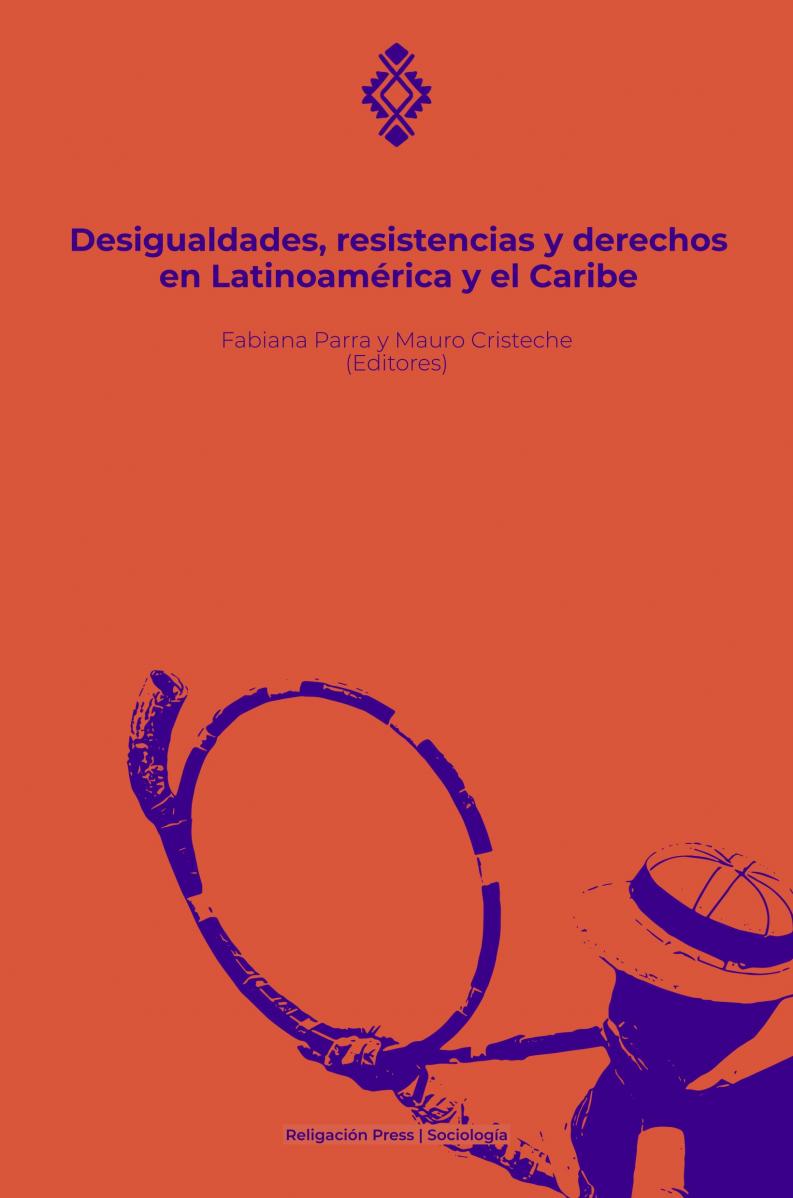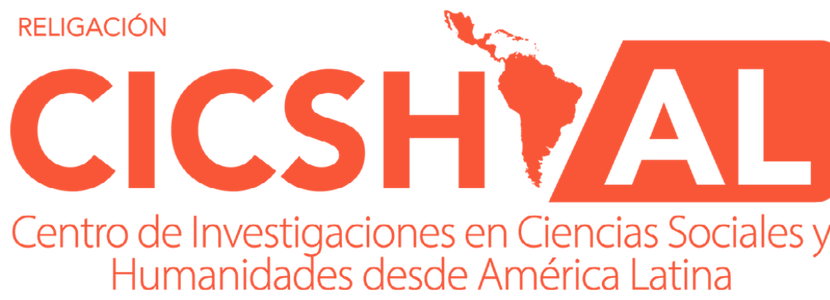Inequalities, resistance and rights in Latin America and the Caribbean
Keywords:
inequalities; resistances; rights; social movements; social transformation; social transformation.Synopsis
This book, the result of a collective work and the intersection of readings, debates and productions, aims to trace the social protests that since the beginning of the 21st century have made visible, with different nuances, the need to transform the precarious living conditions in Latin America and the Caribbean, and to investigate how social protests and resistances against structural inequalities in our region, crossed by demands for the expansion of rights and also by deep political and economic crises, are being modified, configured and redefined. The book addresses the intersections between structural inequalities in the framework of neoliberal capitalism, the current socioeconomic, political and climatic crisis in our region, the resistance to the precarious living conditions of those who inhabit these lands and the real possibilities of social transformation. In its 12 chapters, it maps and explores different expressions of social protest and human rights claims at both regional and local levels in more than ten Latin American and Caribbean countries, taking into account their emergency conditions and their vicissitudes in relation to the historical and growing social inequality that is intertwined with inequalities of class, gender, sex, racial, age and climate, among others. Thus, some fundamental axes are addressed to understand this plot: feminist struggles, mass movements of informal and unemployed sectors against labor precariousness, environmental struggles, social movements, organizations fighting for the respect of human rights; outbursts and self-convened rebellions for economic, political and legal changes; struggles against extractivism and terricide; among others. The book has been conceived not only as an instrument of analysis and dissemination of the social struggles of the peoples of Latin America and the Caribbean, but also as a contribution to continue thinking and promoting a social transformation that frees our region from so much exploitation, inequality and injustice.
Chapters
-
Socioeconomic dynamics, political mobilization and dispute over rights in Latin America and the Caribbean at the beginning of the 21st century
-
Human Rights struggles in Uruguay: military power and contradictions in progressivism
-
Social movements and political pluralisms in the Latin American context
-
Feminist escrache, punitivism, and the long memory of patriarchy
-
Towards a popular urban feminism: from southern feminisms to the city of care
-
Early childhood education and the sexual division of labor: what is the place of working women?
-
We are back and there are millions of us: the cycles of resistance in Ecuador
-
Tensions between the mass movement and the institutional path: an analysis of the "Chile Awakened" movement.
-
Stop fumigating us! Cartography of an Argentine resistance
-
The July 11 protests in Cuba: causes of a rebellion
-
What is happening in Nicaragua? The self-convened rebellion against the corporate model.
-
From effervescence to political maturity: old and new in the post-1986 Haitian social movement
Downloads
References
Álvarez, L., y Bonnet, A. (2017). Ensayo y error: Un análisis marxista de las políticas públicas. Revista Mexicana de Ciencias Políticas y Sociales, (233), 169-192.
Balan, M., and Montambeault, F. (2020). Legacies of the Left Turn in Latin America: The Promise of Inclusive Citizenship. University of Notre Dame Press.
Bauluz, L., Govind, Y., y Novokmet, F. (2020). Global Land Inequality. World Inequality Lab, Working Paper, (10), 1-26.
Beck, C., Meyer, J., Hosoki, R., & Drori, G. (2019). Constitutions in World Society: A New Measure of Human Rights. In G. Shaffer, T. Ginsburg, & T. Halliday (Eds.), Constitution-Making and Transnational Legal Order (pp. 85-109). Cambridge University Press. http://doi.org/10.1017/9781108561792.004
Cristeche, M. (2020). Capital Accumulation, the Role of the State and Human Rights in Argentina. Oñati Socio-Legal Series Journal, 10(4), 717-743.
Dixon, R. (2018). Los Derechos Constitucionales como sobornos. Derecho & Sociedad, (51), 233-263.
Gargarella, R. (2014). La sala de máquinas de la Constitución: dos siglos de constitucionalismo en América Latina (1810-2010). Katz Editores.
Harvey, D. (2004). El nuevo imperialismo. Ediciones Akal.
Holmes, S., y Sunstein, C. (2015). El costo de los derechos. Siglo XXI Editores.
Hickel, J., Dorninger, C., Wieland, H., and Suwandi, I. (2022) Imperialist appropriation in the world economy: Drain from the global South through unequal exchange, 1990–2015. Global Environmental Change, (73), 1-13.
Iñigo Carrera, J. (2008). El capital: razón histórica, sujeto revolucionario y conciencia. Imago Mundi.
Iñigo Carrera, J. (2009). La unidad mundial de la acumulación de capital en su forma nacional histórica dominante en América Latina. IV Coloquio de la Sociedad de Economía Política Latinoamericana, Buenos Aires.
Iñigo Carrera, J. (2017). La renta de la tierra formas, fuentes y apropiación. Imago Mundi.
Jelin, E., Motta, R., y Costa, S. (2020). Repensar las desigualdades. Siglo XXI Editores.
Kessler G., y Benza, G. (2021). La ¿nueva? estructura social de América Latina. Siglo XXI Editores.
Lastra, F. (2020). Superexplotación de la fuerza de trabajo en América Latina y su expresión en Argentina. Realidad Económica, 50(334), 93-122.
Lavinas, L. (2014). La asistencia social en el siglo XXI. New Left Review, (84), 7-48
Lustig, N. (2020). Desigualdad y descontento social en América Latina. Nueva Sociedad, (286), 53-61.
Mastromarino, A. (2020). Il nuevo constitucionalismo latinoamericano: una lettura in prospettiva. In Diritto pubblico comparato e europeo, (2), 317- 361.
Moseley, M. y Moreno, D. (2010). The Normalization of Protest in Latin America. Americas Barometer Insights, (42), 1-7.
Moyn, S. (2018). Not Enough: Human Rights in an Unequal World. Harvard University Press
Murillo, V. (2021). Protestas, descontento y democracia en América Latina. Nueva Sociedad, (294), 1-10.
Organización Internacional del Trabajo, OIT (2021). Panorama Laboral 2021. OIT/Oficina Regional para América Latina y el Caribe.
Organización de las Naciones Unidas, ONU-HABITAT (2015). Déficit habitacional en América Latina y el Caribe: Una herramienta para el diagnóstico y el desarrollo de políticas efectivas en vivienda y hábitat. Programa de las Naciones Unidas para los Asentamientos Humanos.
Pastor, R. V., & Dalmau, R. M. (2010). Los procesos constituyentes latinoamericanos y el nuevo paradigma constitucional. Revista ius, 4(25), 7-29
Parra, F., & García Gualda, S. (2021). Contradicciones ineludibles.A propósito del estatuto de alteridad radical de las “hembras colonizadas”. Revista PRAXIS, (83), 1-19. https://doi.org/10.15359/praxis.83.5
Piketty, T. (2021). Une brève histoire de l’égalité. Seuil.
Sánchez Ancochea, D. (2021). The Costs of Inequality in Latin America: Lessons and Warnings for the Rest of the World. Bloomsbury Collections.
Seoane, J., Taddei, E. y Algranati, C. (2006). Las nuevas configuraciones de los movimientos populares en América Latina. En A. Borón y G. Lechini. Política y movimientos sociales en un mundo hegemónico. CLACSO.
Svampa, M. (2006) Movimientos sociales y nuevo escenario regional: Las inflexiones del paradigma neoliberal en América Latina. Sociohistórica, (19), 141-155.
Svampa, M. (2009). Protesta, Movimientos Sociales y Dimensiones de la acción colectiva en América Latina. En Jornadas de Homenaje a C. Tilly, Universidad Complutense de Madrid-Fundación Carolina.
Svampa, M. (2019). Las fronteras del neoextractivismo en América Latina. CALAS Maria Sibylla Merian Center.
Yáñez, L. (2019). Interseccionalidad entre género y clase social en proyectos de vida de estratos medios y trabajadores en las grandes ciudades chilenas. Actuel Marx Intervenciones, (26), 123-134.







